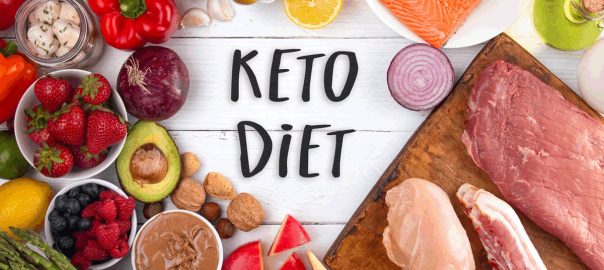
Low Carbohydrate FAQs
New To The Low Carb Diet? Get Answers To Your Most Frequently Asked Questions
Ready to make a lifestyle change to improve your health with a more nutritious diet? Countless people have taken advantage of the unique benefits that a low carb diet can provide, but it’s important to be properly informed before you begin. Here are answers to some of the most common questions about the low carb diet.
From a young age, we are educated that a balanced diet is the best way to ensure our bodies are supplied with all the nutrition we need to stay healthy, but the reality is that the mix of food types that are best will vary for each individual. Sometimes, having too much of a particular type of food can unbalance our bodies and result in weight gain, lower energy levels, and many other types of minor or major health issues. This is often the case when it comes to excessive intake of carbohydrates, hence why the low carb diet has surged in popularity as health education has improved and placed a greater emphasis on nutrition.
Here in North America, the average diet includes a very heavy portion of high-carbohydrate foods. This includes foods made from grains, such as bread, baked goods, and cereal, as well as foods high in sugar, such as soda, candy, and other sweets, and starchy foods like potatoes and pasta. Cutting back on the amount of carbohydrates we eat might seem like a tough challenge at first, when you think about how prevalent all of those examples are on menus and store shelves across the country, but the truth is that it’s not nearly as difficult as some might think.
Low carb foods are all around us, in the forms of meats, dairy, vegetables, fruits, and there are many types of alternative baking and cooking ingredients that can be used to create low carb versions of all the popular foods you know and love. Going low carb has never been easier or tastier than it is today, and this is illustrated by the continually growing portion of Canadians who are making the positive lifestyle shift over to the low carb diet. We see it every day here at The Low Carb Grocery, and the customers we serve reinforce this fact each time we talk with them.
For people new to the concept of the low carb diet, it’s only natural that there be many questions that spring to mind. As the topic gets brought up in the media and in social settings, we often see misconceptions and arise that need to be addressed in order for people to have a clear and accurate understanding of what the low carb diet is all about, how it works, and what they can expect from it. To that end, we’ve compiled a selection of the most commonly asked questions about the low carb diet, and their answers.
- “Who invented the low carb diet?” – While it’s a common misconception that Dr. Atkins was the creator of the low carb diet, this isn’t exactly the case. While Atkins was a major factor in the mainstream adoption of a structured low carb diet to the masses that occurred in the mid 1970’s, doctors and nutritionists have been advocating for reduced-carbohydrate diets for their patients and clients for many decades before that. In fact, there are certain cultures in the world who have had their entire diet centered around low carbohydrate foods for centuries, although in most of these particular cases it is mainly due to necessity of the types of resources found in these regions. In a nutshell, the low carb diet has always been around, but has gained much more momentum since the 1970’s when it was structured and packaged in a way that made it easier for more people to adopt.
- “How does the low carb diet work?” – The way our body creates energy is by breaking down food to create fuel, namely sugars and fats. The way our bodies process these two types of fuel is different, with sugar being the primary source, because it’s faster and easier for the body to process, and fat being the secondary source. When the body is given more fuel than it needs on any given day, the remaining fuel is usually stored in the body as reserves in the form of fat. In simplest terms, the low carb diet works by cutting back on the amount of sugars the body has available to use as fuel, thereby shifting the process of energy creation over to fats. There are many more details that further explain the exact details of how the low carb diet works to aid in weight loss, which you can read here in our Helpful Guide to Lose Weight, The Low Carb Way.
- “What kinds of foods are high in carbs?” – The list of all the foods that are considered to be high in carbs would be virtually endless if we named each and every one, but in general there are a few guidelines you can use to narrow things down into easy categories. First, many carbs come in the form of simple sugars, so sweet candies, sugary sodas and drinks, and chocolate would all be considered high-carb foods, along with very sweet fruits like pineapple, grapes, and mangoes. Next in the list is starchy foods, and this is a very big category. It includes pretty much anything made using wheat flour like bread, bagels, tortillas, pizza crust, cereal, buns, and many other baked goods. Starchy foods also include potatoes, rice, pasta, and many kinds of snack chips and crackers. There are many other types of high-carb foods to avoid, such as those outlined in our list of High Carb Ingredients to Sidestep.
- “What kinds of foods are low in carbs?” – Fortunately, even though the list of high-carb foods is long, the list of low-carb foods is just as expansive. Many vegetables like lettuce, broccoli, asparagus, mushrooms, zucchini, spinach, cauliflower, and non-starchy root vegetables like turnips and parsnips, are low in carb content. There are also many types of fruits that are less ‘sugary sweet’ and lower in carbs like watermelon, cantaloupe, strawberries, raspberries, and avocado. Protein-rich foods like beef, pork, chicken, cheese and dairy, nuts and seeds, fish and shellfish, and eggs are very low in carbs, making them a key part of the low carb diet. For more information on the best types of low carb foods, refer to our guide to Understanding Low Carb Food Options.
- “What is the right way to count carbs?” – When looking at the carb counts in different foods using the nutrition labels, there’s a method that must be used to accurately measure carbs. On a typical nutrition label, you will see 3 different lines in the ‘carbohydrate’ section. These include Total Carbohydrates, Dietary Fiber, and Sugars. As you’d assume, Total Carbohydrates includes the sum of the values shown under Sugars and Dietary Fiber, however when counting carbs as part of the low carb diet, the value for dietary fiber can be disregarded as these carbs are not absorbed in the bloodstream. So, for example, if the total carbs listed on a label shows 12g, with 4g of dietary fiber and 8g of sugar, the net carb count you’d track would be 8g for that particular food product. For a complete understanding on this, check out our Easy Guide to Counting Carbs.
- “How many carbs is too many for one day?” – The exact number will vary based on your individual goals and the guidelines given to you by your doctor or nutritionist, however a low carb diet is generally defined as anything under about 100-150 g of carbs in one day. If the daily carb intake is higher than this, the body will likely have enough sugars in the bloodstream that it will not need to use fats for fuel. Some variations of the low carb diet, such as the ketogenic diet for example, require a much lower daily carb allowance of as little as 20g of carbs per day. Again, it bears repeating that the exact daily carb target value for an individual should be determined carefully and with the direct input and guidance of an expert health professional.
- “What are artificial sweeteners?” – Sugar substitutes have been around for a very long time. The earliest artificial sweetener introduced to the public was saccharin in the 1950’s, but its discovery dates back to 1879! Since then, many different types of sugar alternatives have been introduced to help reduce the amount of refined sugars in our diets. While some alternative sweeteners are artificially created, such as many types of sugar alcohols like erythritol and xylitol, others are naturally sourced such as monk fruit extract and stevia. In any case, artificial sweeteners make it easy for low carb dieters to keep sugar out of their diets while still enjoying the sweet treats and delicious desserts they love. Learn more about sugar alternatives here, and shop our wide range of low carb sweeteners here.
- “Can I have any bread at all on the low carb diet?” – The short answer to this is, yes, absolutely. In fact, you can have plenty of bread, but not the typical loaves of white bread you’ll find at the nationwide grocery chains. Ultimately it depends on the ingredients that the bread product is made with, and how this mix will affect the carbohydrate values. Using non-wheat flours such as almond flour and coconut flour will dramatically lower the total carb count in many types of baked goods such as bread, wraps, tortillas, bagels, muffins, cookies, pizza dough, and more. There are plenty of delicious low carb baked goods to choose from, as you’ll see in our selection of low carb bread, crusts, pitas, and wraps.
- “Is candy off-limits for low carb dieters?” – Like bread, the answer is that candy is just fine, as long as it’s the low carb version of it. The variety and quality of sugar-free & reduced-sugar candy often surprises people the first time they start exploring the category. It’s not just hard candies anymore, but includes everything from gummi bears and licorice to rich, decadent chocolate and even marshmallows. To find out more, we recommend visiting our blog article that showcases different Low Carb Candy and Soda Options.
- “Is the keto diet the same as the low carb diet?” – The Ketogenic Diet is a variation on the low carb diet, but the two are not identical. The keto diet relies on the body achieving a state known as ‘ketosis’, where the body is not fueled by sugars at all, but instead breaks down fat molecules to produce a substance in the bloodstream called ketones, which are then used as fuel instead of sugars. The state of ketosis is easily disrupted by ingesting too many carbs (generally no more than 20g of carbs per day), and so keto dieters must be precise in their management of carbs. The full story of the keto diet is more complex than what we can get into here, but for a complete overview, we’ve got all the info in this helpful reference explaining how the keto diet works.
Learn More About The Low Carb Diet Today
If your interest is piqued and you want to continue to learn more about the low carb diet, we encourage you to browse around the sections of our Low Carb Lifestyle blog to find recipes and low carb cooking ideas, helpful product reviews of popular low carb brands, and inspirational success stories of real people who have changed their lives with the benefits of the low carb diet.
Or, shop all low carb product categories.






